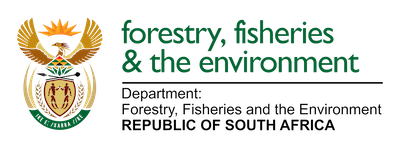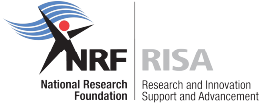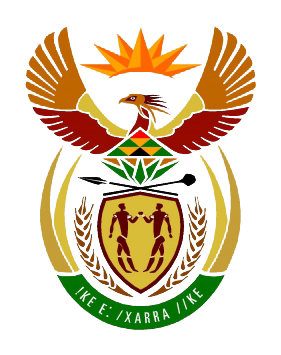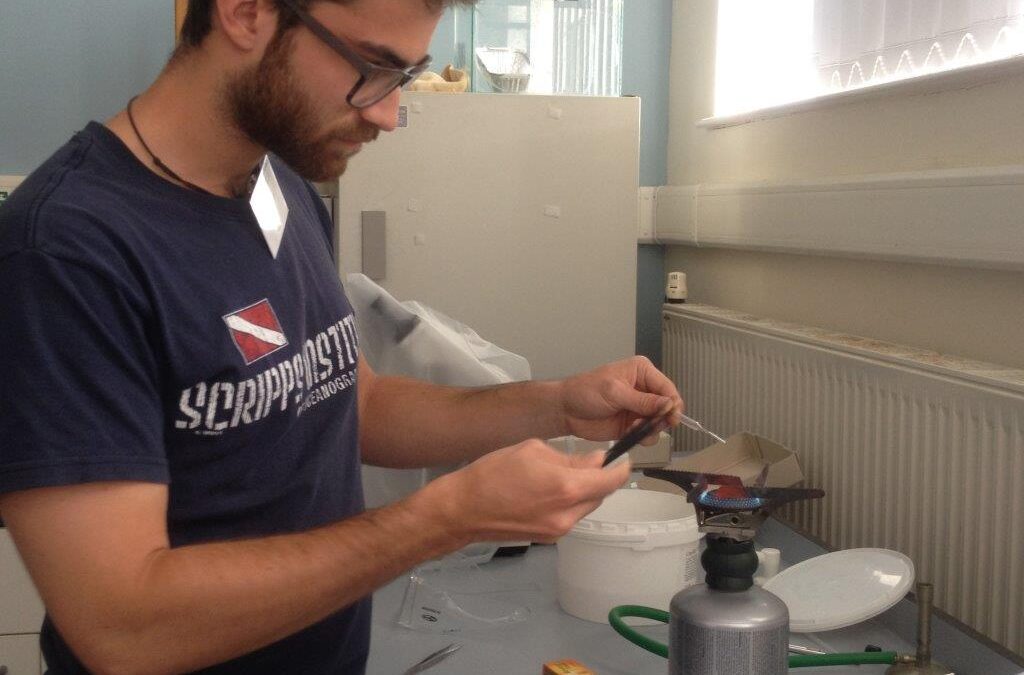
by Ria Olivier | Jun 20, 2020 | Research, SANAP, SANAP Student, SCAR, Science, Southern Ocean, Uncategorised

 Luca Stirnimann received his BSc at the University of Genova (Italy) in 2013, majoring in Environmental Science. He was introduced to his first marine applications of ecology and taxonomy during a summer school spent on the Linosa Island (Mediterranean Sea) as an undergraduate, investigating invasive marine alien species. During his MSc in Genova, he could study time series and regime shifts analysis on plankton systems. After graduated summa cum laude in Marine Sciences (2015) at the University of Genova, he spent one year at the Marine Biological Association (Plymouth, UK) attending the MRes in Marine Biology, where he could continue his studies on plankton and experimenting the life as a scientific researcher.
Luca Stirnimann received his BSc at the University of Genova (Italy) in 2013, majoring in Environmental Science. He was introduced to his first marine applications of ecology and taxonomy during a summer school spent on the Linosa Island (Mediterranean Sea) as an undergraduate, investigating invasive marine alien species. During his MSc in Genova, he could study time series and regime shifts analysis on plankton systems. After graduated summa cum laude in Marine Sciences (2015) at the University of Genova, he spent one year at the Marine Biological Association (Plymouth, UK) attending the MRes in Marine Biology, where he could continue his studies on plankton and experimenting the life as a scientific researcher.
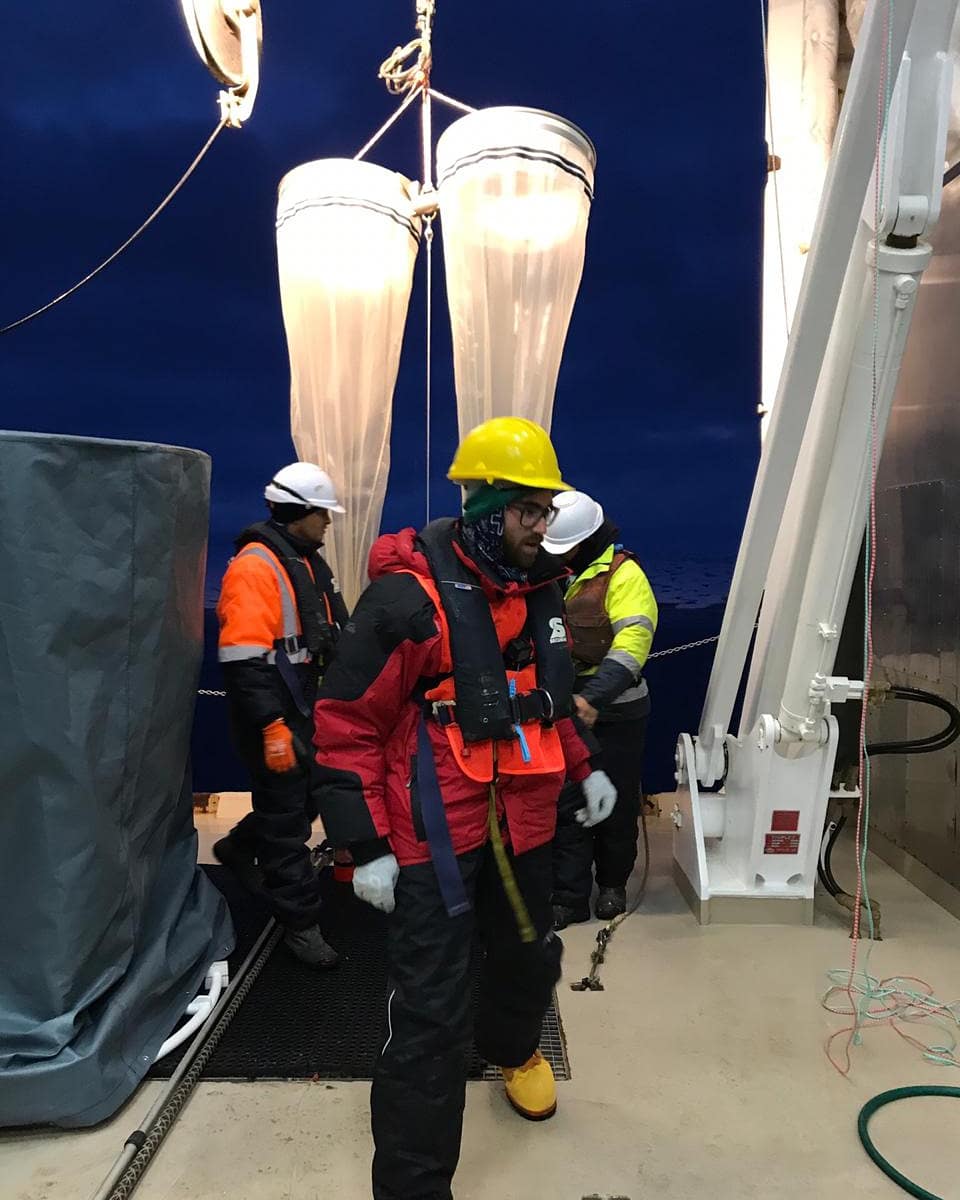

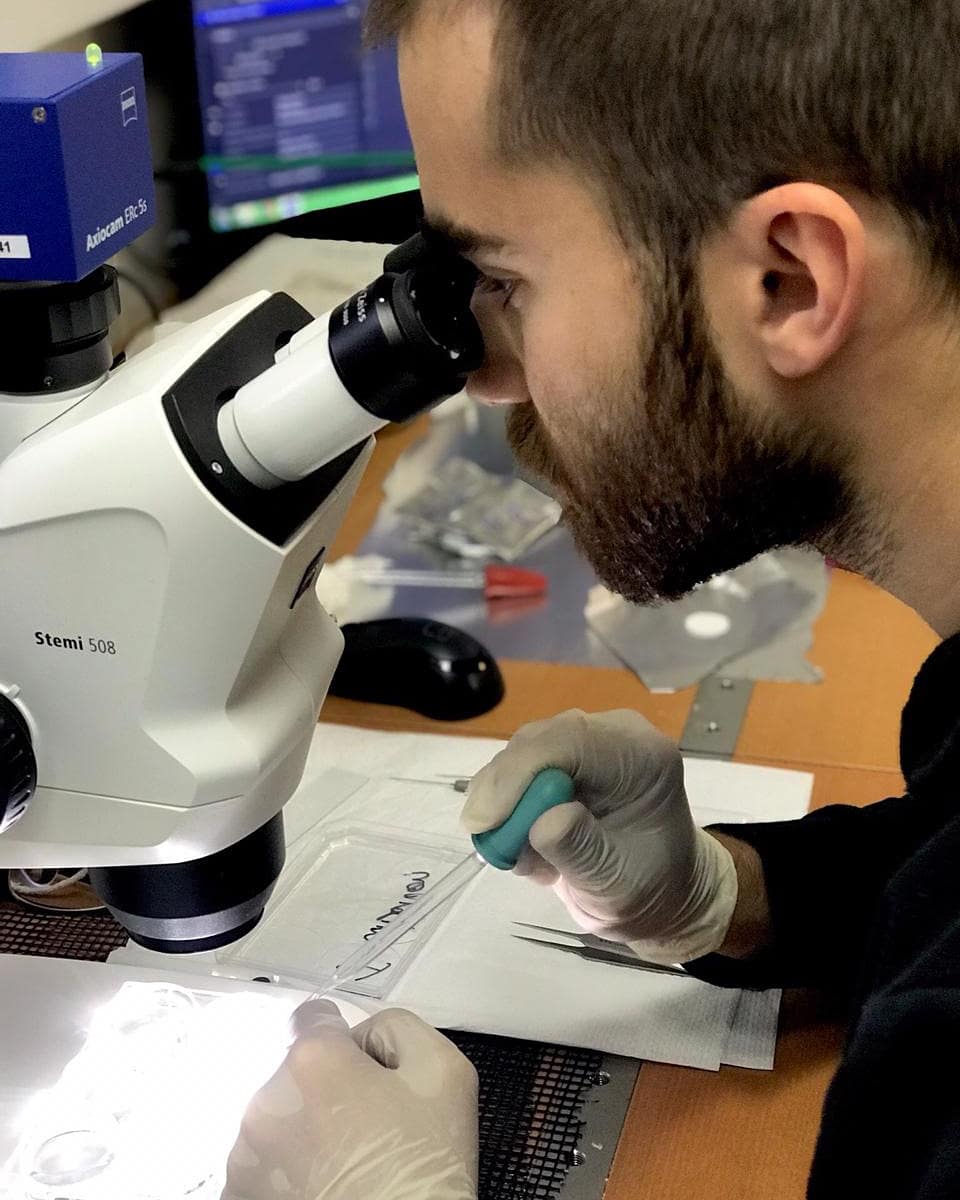
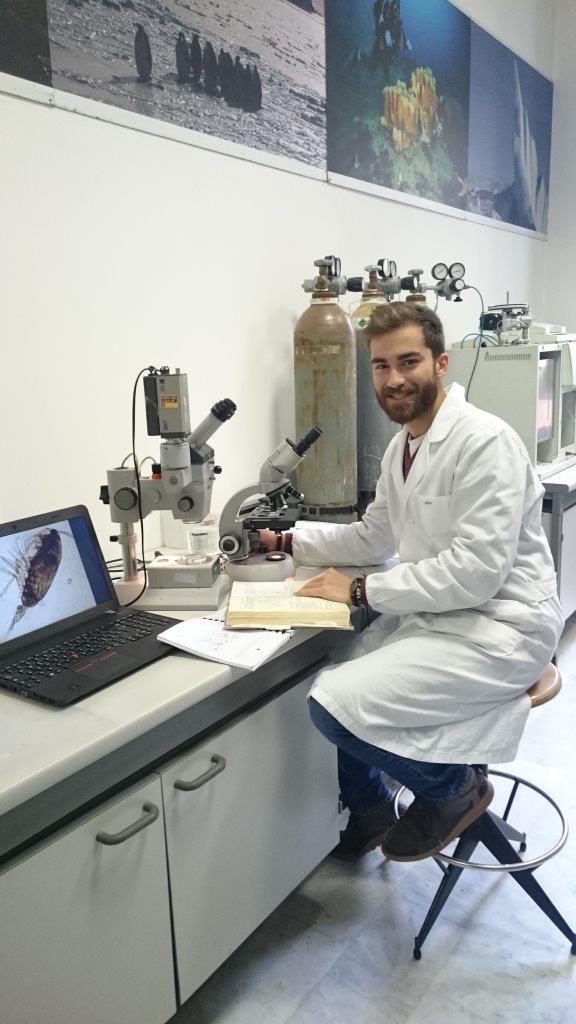 From 2017, he is a PhD student at the University of Cape Town. He analyses the samples he collected during several expeditions to Antarctica, in order to investigate zooplankton and phytoplankton dynamics in the Southern Ocean in the context of nutrient cycling and primary production. He is comparing ecosystem dynamics in the vicinity of Subantarctic island systems with the open Southern Ocean. Luca’s project falls under the current SANAP Project: “A nitrogen cycle view of atmospheric CO2 sequestration in the Antarctic Ocean” (Principal Investigator: Dr SE Fawcett, University of Cape Town)
From 2017, he is a PhD student at the University of Cape Town. He analyses the samples he collected during several expeditions to Antarctica, in order to investigate zooplankton and phytoplankton dynamics in the Southern Ocean in the context of nutrient cycling and primary production. He is comparing ecosystem dynamics in the vicinity of Subantarctic island systems with the open Southern Ocean. Luca’s project falls under the current SANAP Project: “A nitrogen cycle view of atmospheric CO2 sequestration in the Antarctic Ocean” (Principal Investigator: Dr SE Fawcett, University of Cape Town)
Why you love your career in science?
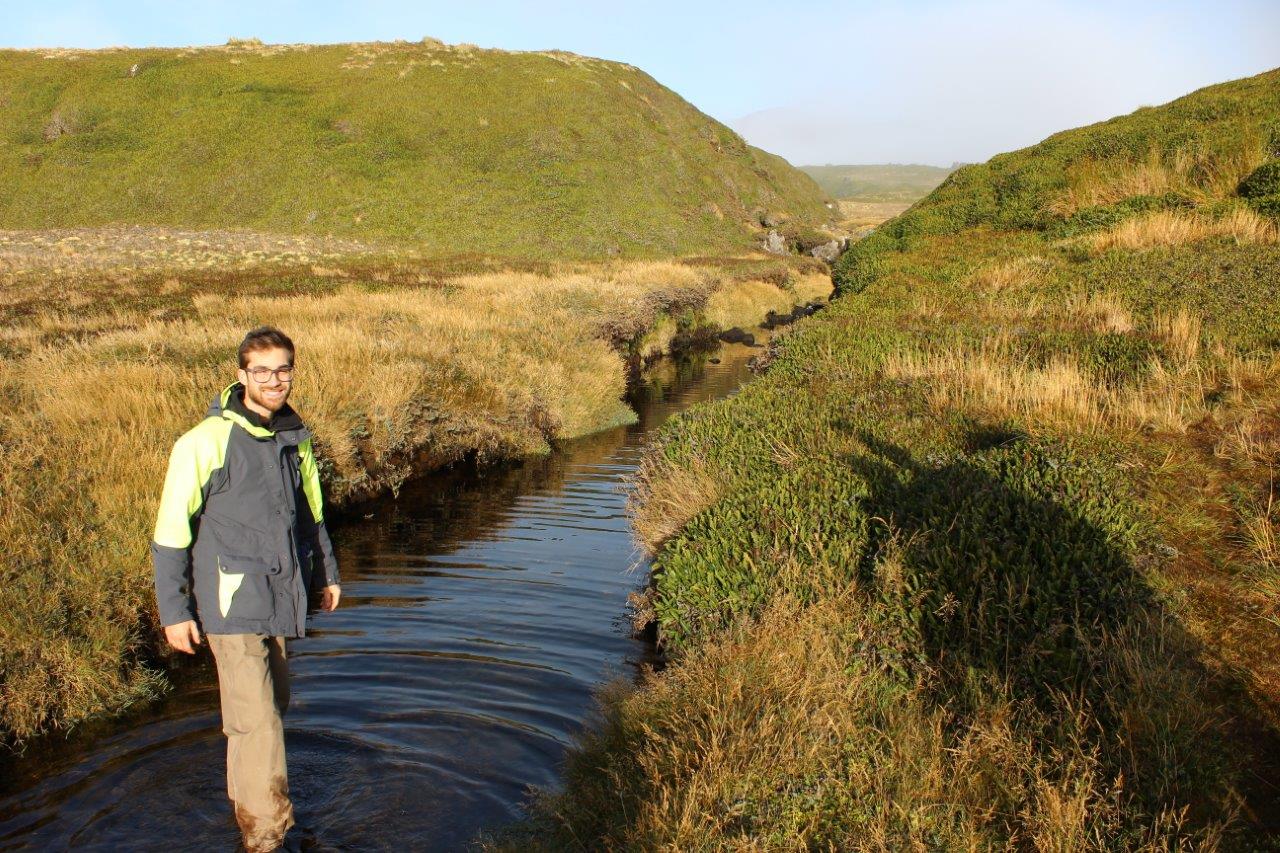
 Earth science, in general, has always been fascinating to me and since I was little, my desire was to discover and learn new things related to our oceans.
Earth science, in general, has always been fascinating to me and since I was little, my desire was to discover and learn new things related to our oceans.
As I do love Sherlock Holmes stories, in this job I see myself as a detective that has to solve a case. In fact, any phenomenon in nature may be more or less complicated to be described or understood, but the samples and the analysis are like clues of a case and using them, it is possible to solve any scientific mystery.

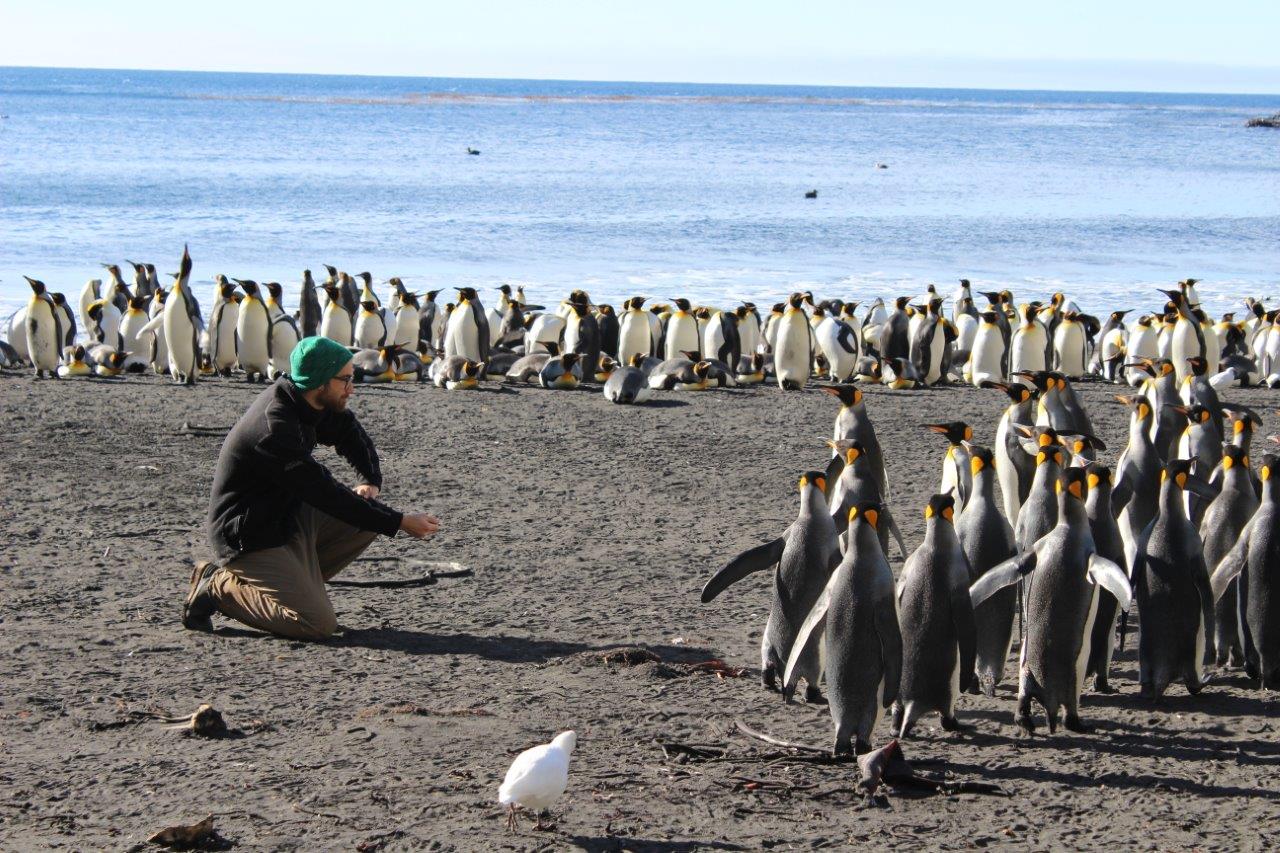
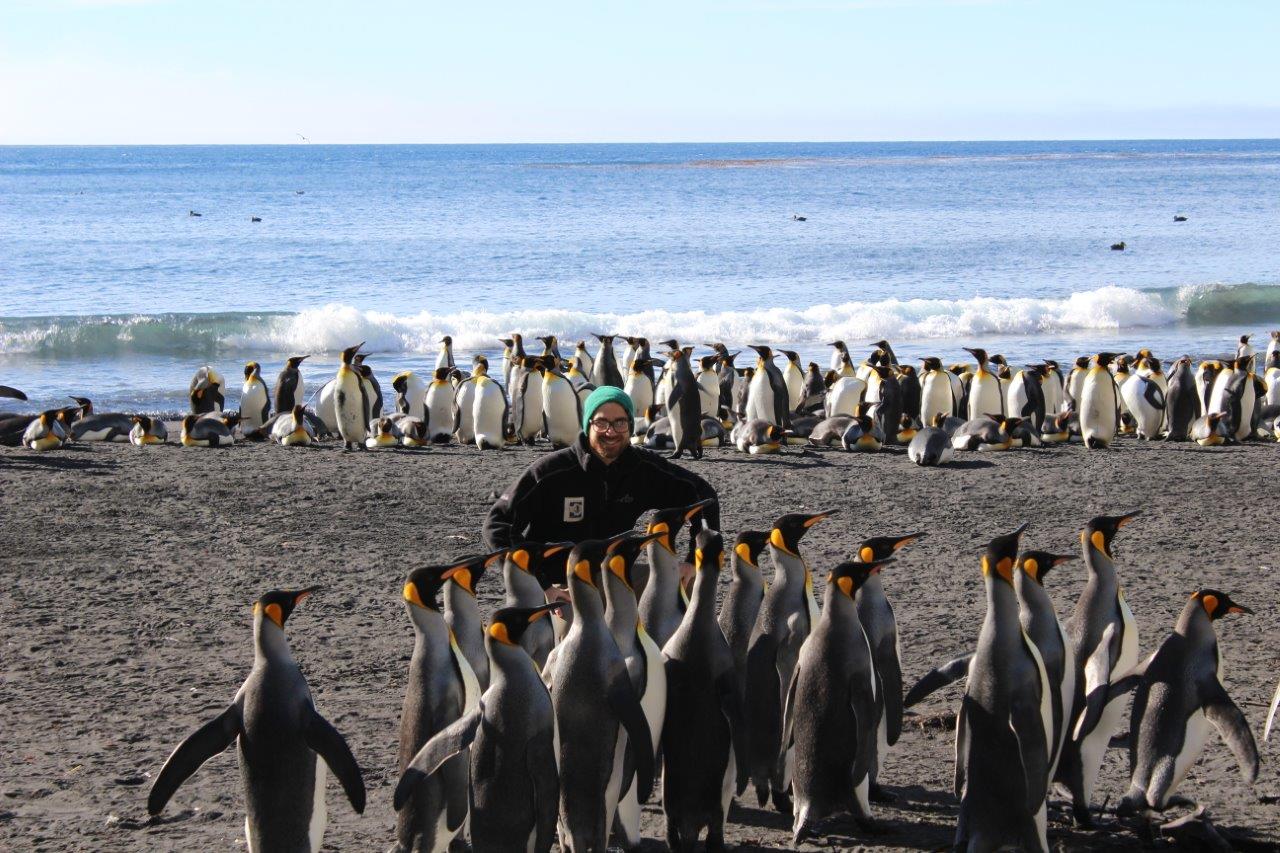 Thanks to oceanography, I can attend fantastic expeditions anywhere in the world, exploring from the icy polar seas to the warmer waters of the equator, spending weeks or even months on board of research vessels. During these trips, I always meet colleagues and extraordinary scientists that share the same interests and passions of mine, even if they are from different fields. Furthermore, coming to South Africa, I joined two great scientific communities: one is the SANAP group, where all the experts of the Antarctic systems meet all together to share their works and thoughts; and the second, the South African Association of Polar Early Career Scientists (APECSSA), which gives me the privilege to develop a South African group of scientists with the Polar Science as a common interest.
Thanks to oceanography, I can attend fantastic expeditions anywhere in the world, exploring from the icy polar seas to the warmer waters of the equator, spending weeks or even months on board of research vessels. During these trips, I always meet colleagues and extraordinary scientists that share the same interests and passions of mine, even if they are from different fields. Furthermore, coming to South Africa, I joined two great scientific communities: one is the SANAP group, where all the experts of the Antarctic systems meet all together to share their works and thoughts; and the second, the South African Association of Polar Early Career Scientists (APECSSA), which gives me the privilege to develop a South African group of scientists with the Polar Science as a common interest.
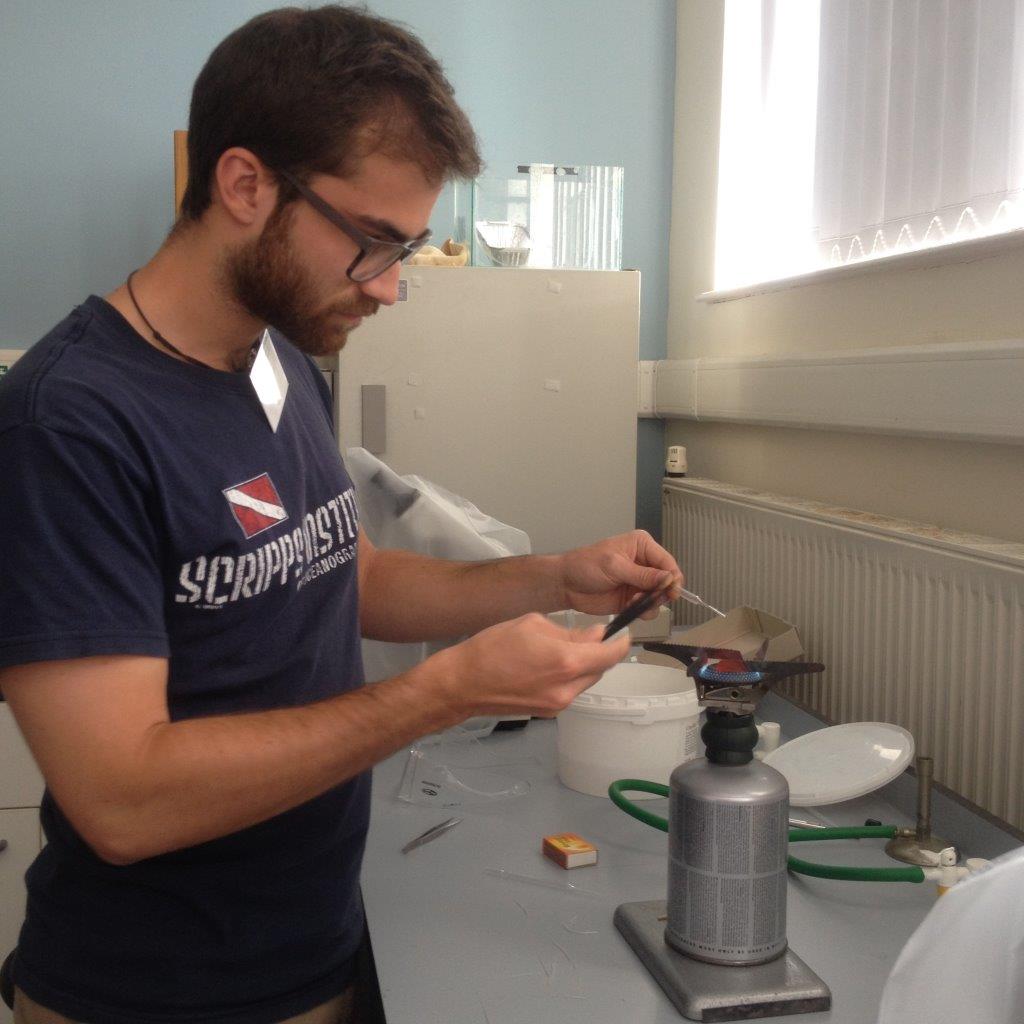
 This is a great career that stimulates you at any moment of your life, and if you are curious, motivated, and resourceful, well… this job is waiting for you.
This is a great career that stimulates you at any moment of your life, and if you are curious, motivated, and resourceful, well… this job is waiting for you.
In 2018 at POLAR2018 (SCAR/IASC Open Science Conference 2018) he was awarded with the 1st prize for the Association of Polar Early Career Scientists (APECS) Poster Awards (Sector: Africa and Middle). Poster Title: “The Island Mass Effect (IME) on carbon cycling in the plankton ecosystem around the Prince Edward Islands archipelago”.
Luca is current a committee member of APECSSA. Follow @LStirnimann and @apecssa on Twitter
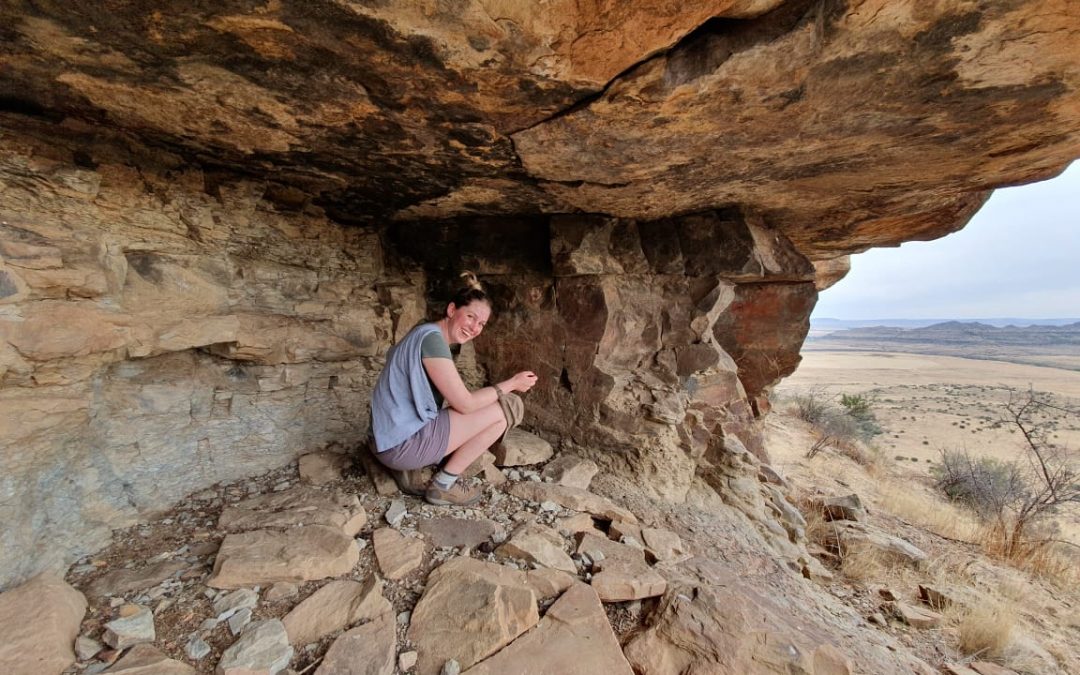
by Ria Olivier | May 23, 2020 | Antarctica, Geomorphology, Research, SANAP, SANAP Student, Science, Women in Science
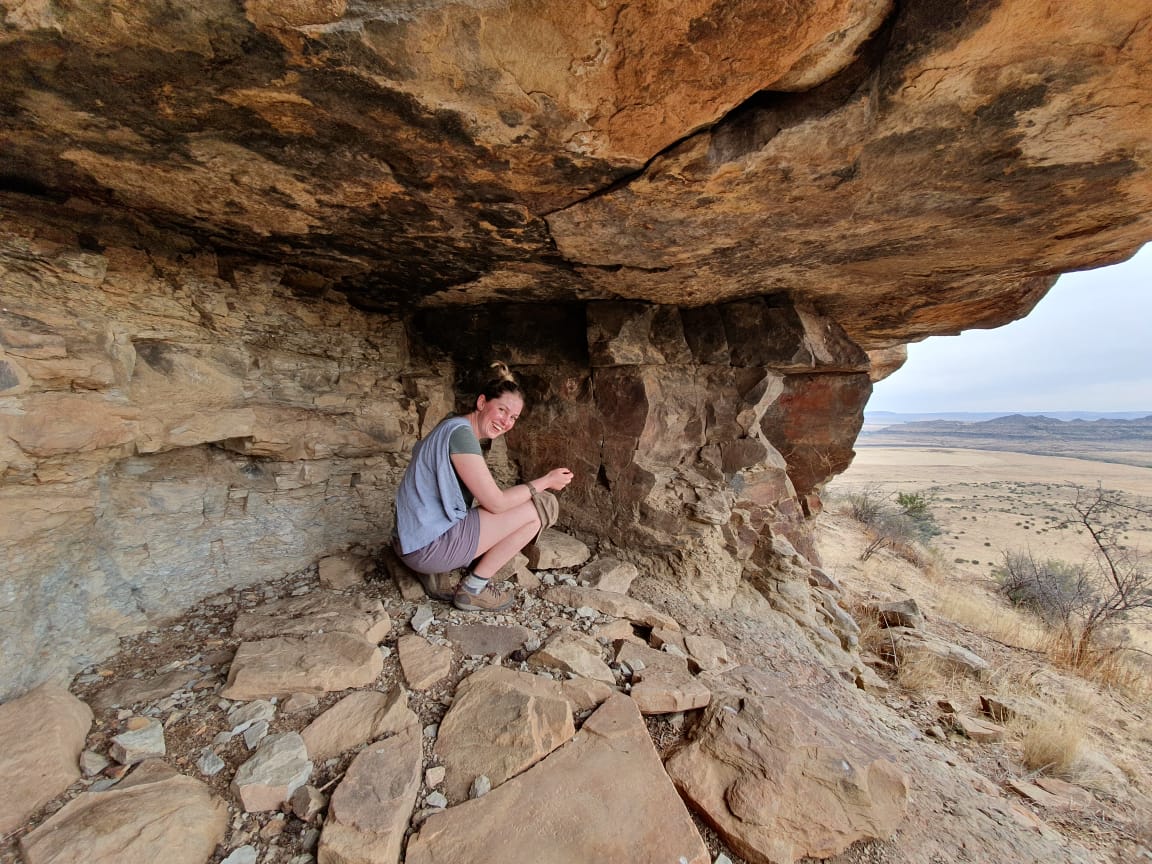 Liezel (Elizabeth) Rudolph obtained her Geography BSc and Honours degrees at the University of Pretoria, and a MSc at Rhodes University. She also has a PGCE from UNISA, which allowed her to teach Geography at Abbott’s College in Pretoria for a few years. She is currently in the final stages of her PhD (also in Geography) at the University of Fort Hare. She currently lectures Geomorphology at the University of the Free State. Her postgraduate research focussed on glacial and peri-glacial landforms and their response to (past and present) climate change. These studies afforded her opportunities to visit the research stations on Marion Island and in the Antarctic, working with SANAP-NRF funded programmes in geomorphology – Landscape Processes in Antarctic Ecosystems and Sub-Antarctic Landscape-Climate Interactions.
Liezel (Elizabeth) Rudolph obtained her Geography BSc and Honours degrees at the University of Pretoria, and a MSc at Rhodes University. She also has a PGCE from UNISA, which allowed her to teach Geography at Abbott’s College in Pretoria for a few years. She is currently in the final stages of her PhD (also in Geography) at the University of Fort Hare. She currently lectures Geomorphology at the University of the Free State. Her postgraduate research focussed on glacial and peri-glacial landforms and their response to (past and present) climate change. These studies afforded her opportunities to visit the research stations on Marion Island and in the Antarctic, working with SANAP-NRF funded programmes in geomorphology – Landscape Processes in Antarctic Ecosystems and Sub-Antarctic Landscape-Climate Interactions.
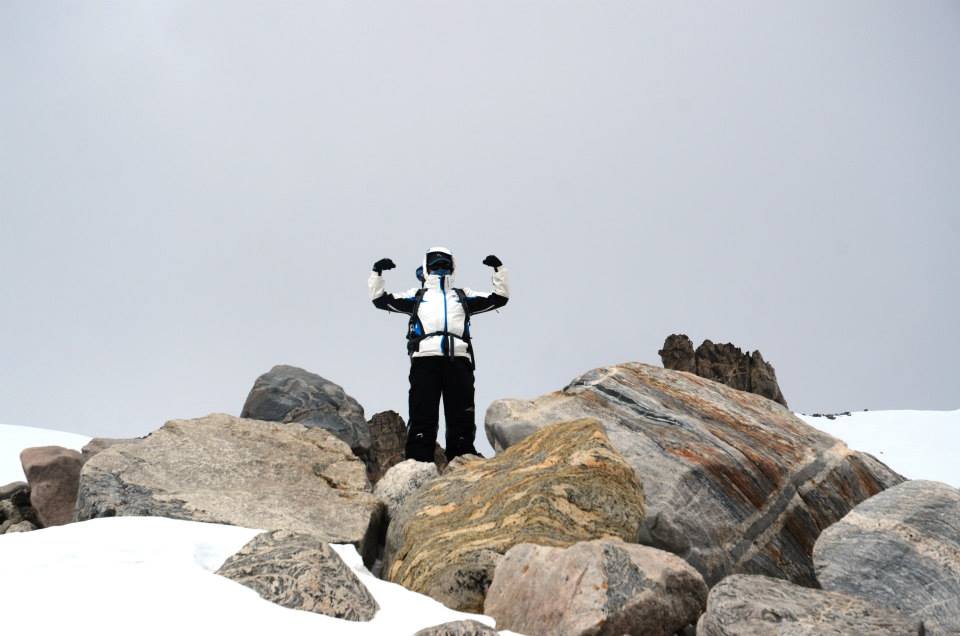
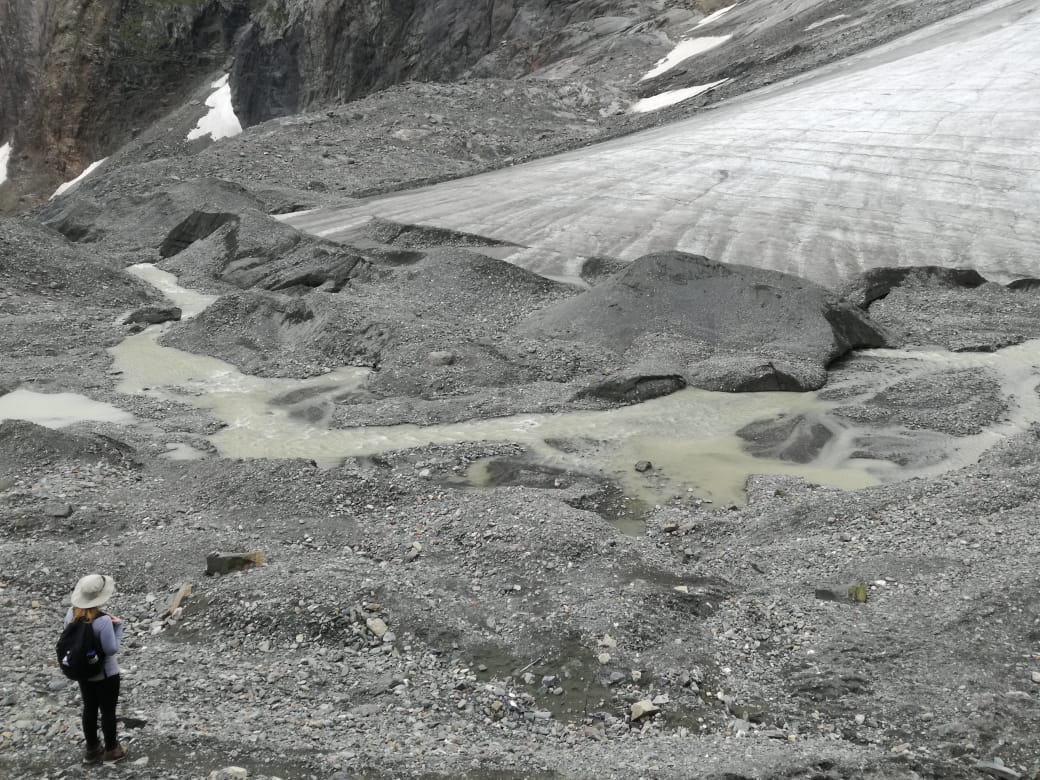
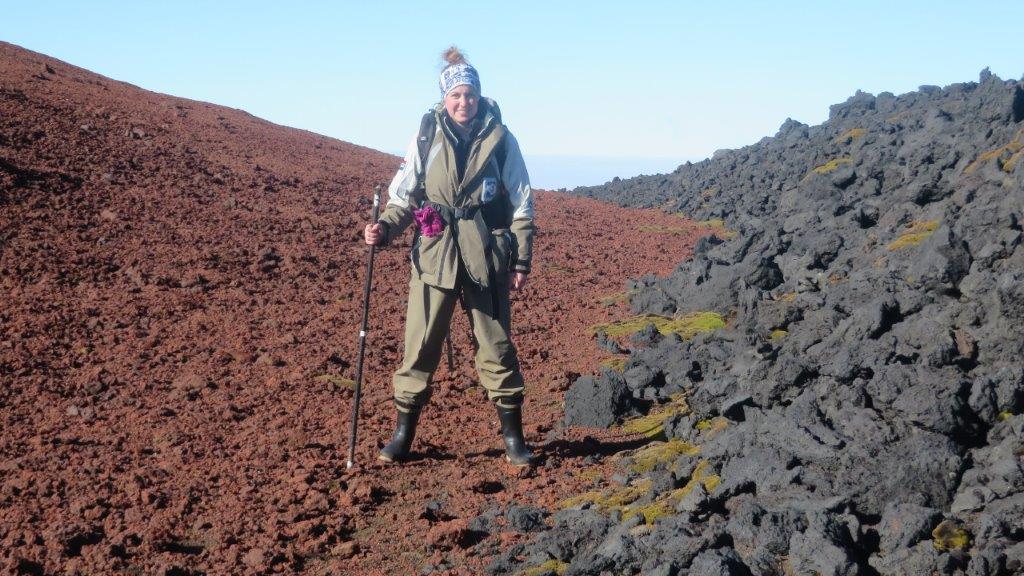
Where you come from where did it all started
I grew up in Pretoria. I never knew what I wanted to be when I grow up – all my friends had career aspirations, but I had interests. I liked variety and the thought of having one, predictable job for the rest of my life scared me endless. I had a keen interest in earth and physical sciences, but I also really enjoyed the arts and design. However, I was neither a Newton nor a Michelangelo at school and the prospect of either as a career path did not sit quite well with me. By the time I finished school I could still not decide on a single career and nothing in the university catalogues seemed to tick all the boxes. So, by process of elimination, I crossed out everything that sounded boring or would involve living creatures (I faint at the sight of blood), and the only thing that was left was Geography. I should’ve known – it’s a science that allows, no, encourages, variety of thought and expression. But I didn’t end up in research straight away. After I finished my Honours in Geography, I taught high school for a few years before returning to full-time studies to pursue a Masters. During my Masters though, I truly missed teaching. There’s something magical about sharing your passion on a subject with young people, and them getting equally excited about it. Its then that I realised a career where I can actively pursue my research interests, and teach, would be my dream job. I don’t believe I could’ve reached this realisation on my own. I had many mentors (parents, teachers, bosses, supervisors) who could lead, inspire and guide me. Through my post-school adult years, I didn’t always know how things will play-out, but I stuck to things I enjoyed and tried to do everything to the best of my ability. I could have followed a more predictable career path, but I may not have been so excited about it, as I am about what I get to do now. I am now lecturing Geomorphology at the University of the Free State and pursuing a PhD in Geography which, on top of everything, is on a topic I’ve been fascinated with since I first read a short story in my English class, at age 11 – glaciers.
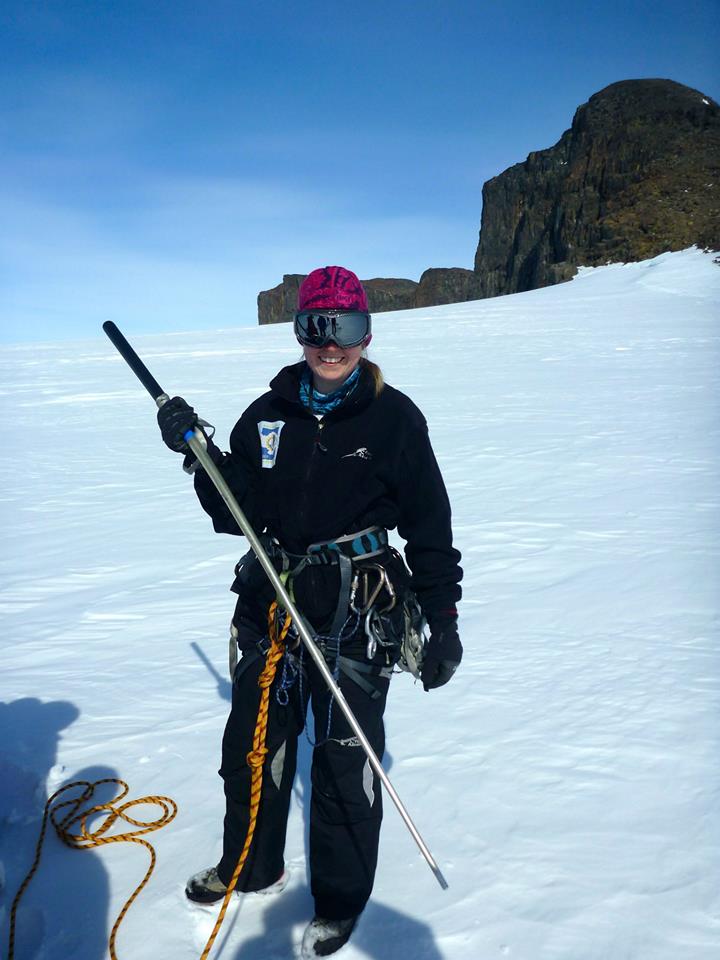
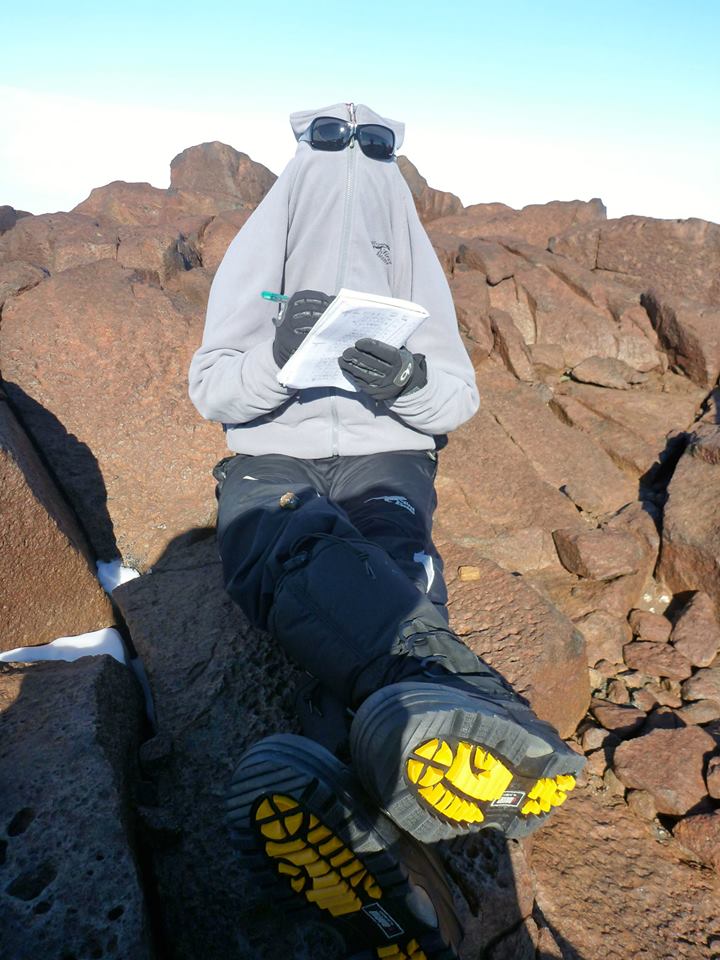
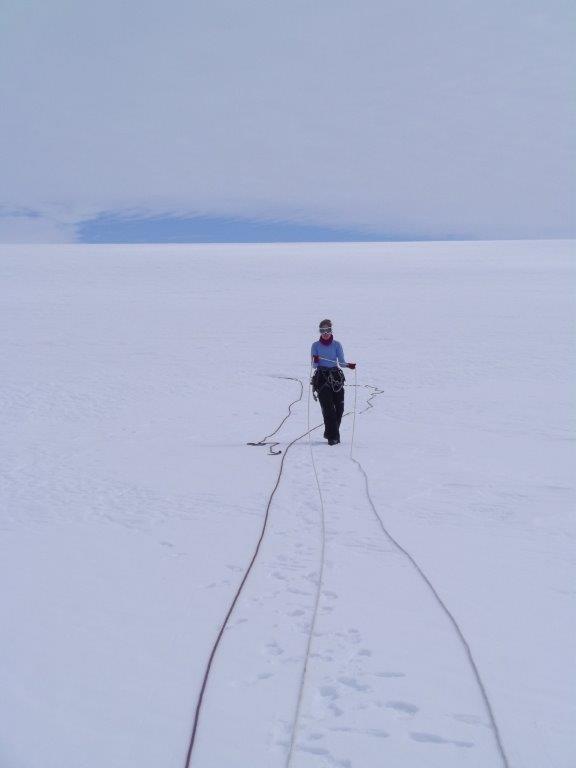
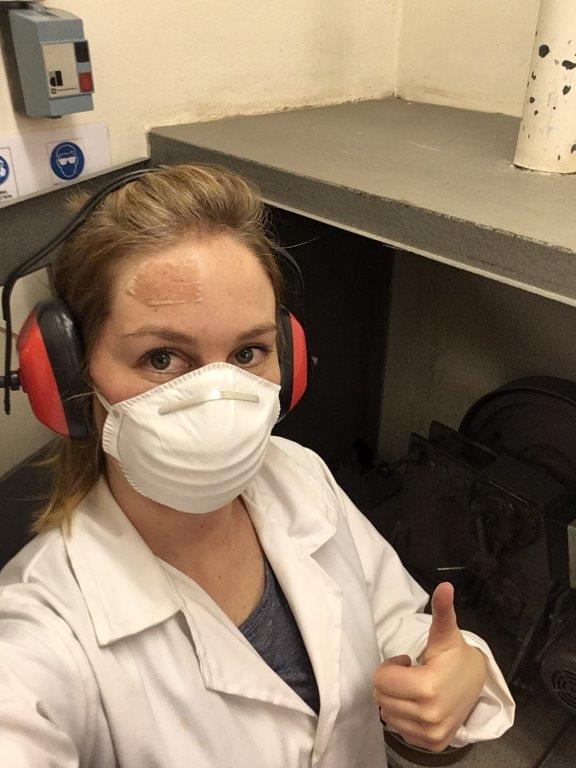
Why you love your career in science?
It never grows old. With new discoveries come a flood of new unanswered questions. It pushes your mental limits and if you like that sort of challenge, you won’t easily get bored. Geography, especially, allows you to think both critically and creatively – it’s like playing a game with rules, but you are allowed to invent new rules. It allows you to visit amazing landscapes (if you’re a Geographer) and meet new and interesting people. Perhaps the best part of is, that it allows you to explore something you are very curious about, and you get to share your findings with an audience that are interested. At the same time, you benefit from what others have discovered about their own curiosity. It’s a constant learning process. In my experience I’ve gotten to work with incredible minds in the Southern African Geomorphology community, and have had the privilege to meet world-class scientists form other fields within the greater SANAP community – all who very passionate about their research fields and to whom I owe much of my passion for science. I am currently serving on the Association of Polar Early Carer Scientists’ South African National Committee (APECSSA), which has awarded me the opportunity to meet other early career scientists, not only from the Earth Science field, but from the Ocean-, Biological-, Botanical- and Space-physics sciences, to name a few. I don’t know of many other careers that would you expose you to such a variety of people and places.
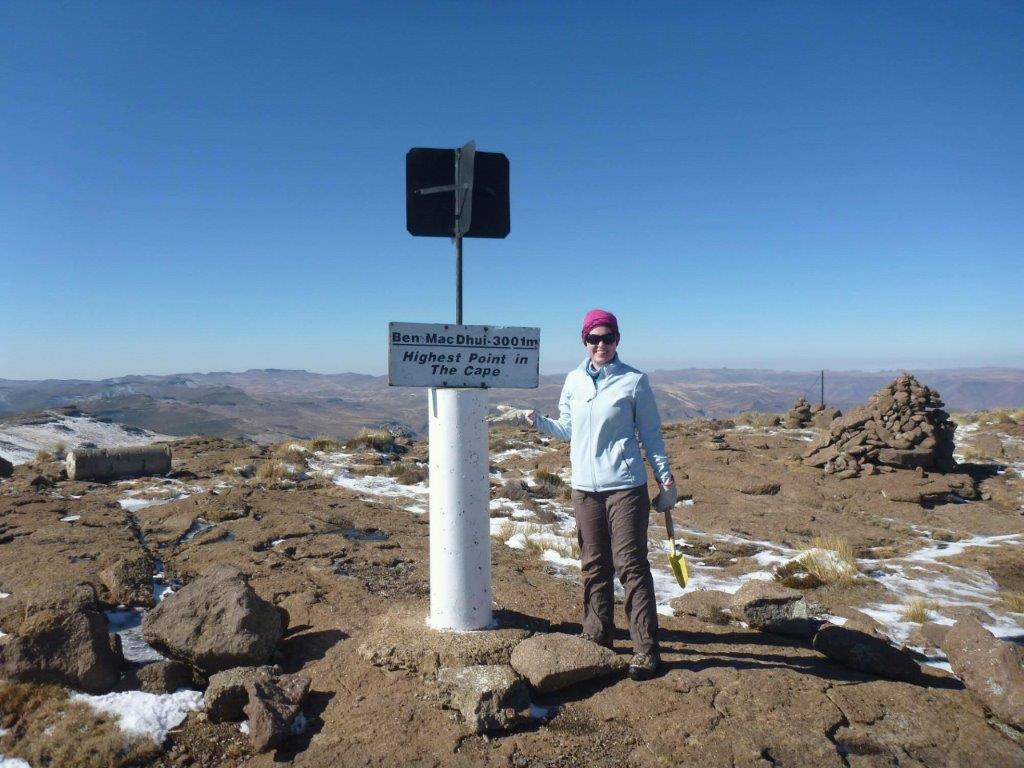
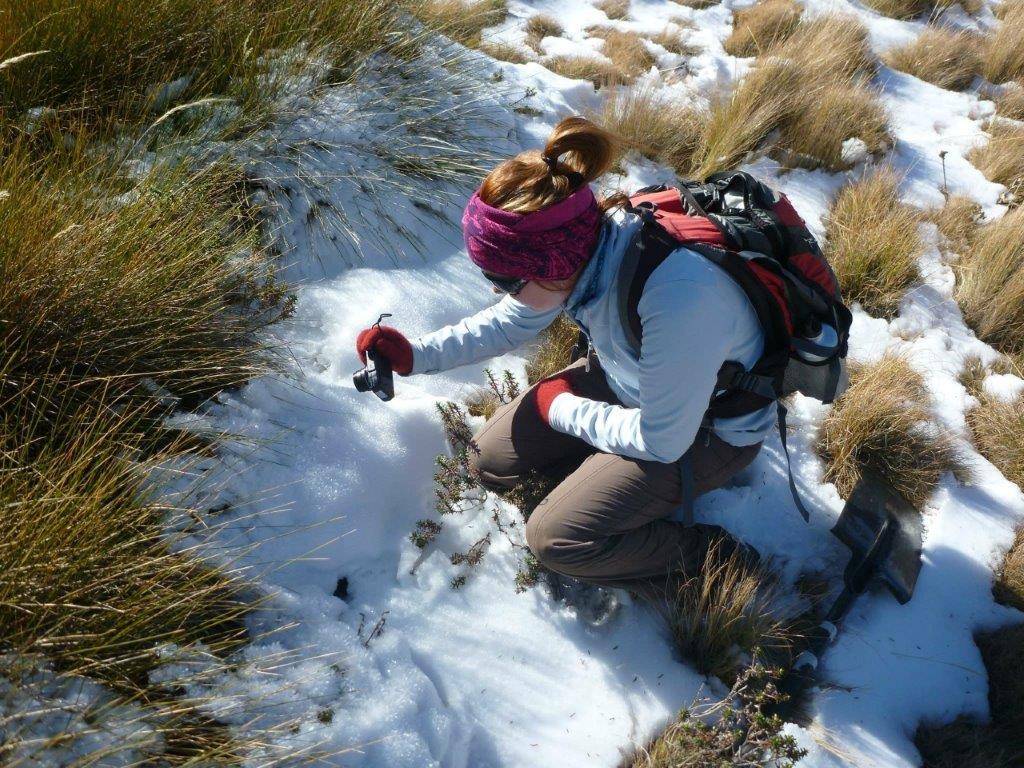

“Science is like art, perhaps with a few more rigorous guidelines, and it allows you to draw on your own unique talents – just like an artist has a specific style. So, you should play by the rules, but you don’t have to fit a mould. Find mentors and listen to their advice. Make your own decisions and take responsibility for yourself. Don’t do anything halfies – finish what you’ve started and do it properly, or leave it all together. I believe that no time spent doing something well, is ever time wasted – experience is what makes us human. People will always be more important than science, so value your personal and professional relationships.” – Liezel
Links:
google scholar: https://scholar.google.co.za/citations?user=lwGJSqAAAAAJ&hl=en
Facebook: https://web.facebook.com/apecssa/ ;
https://web.facebook.com/sanaplci/
Twitter: @Apecssa; @sanaplci
Interview: GrootOntbyt /GrootFM 90.5, a community radio station in Pretoria.
Interview: at Aktru research station, in Siberia.
Article: Early glacial maximum and deglaciation at
sub-Antarctic Marion Island from cosmogenic 36Cl exposure dating
Text and Images: Liezel Rudolph
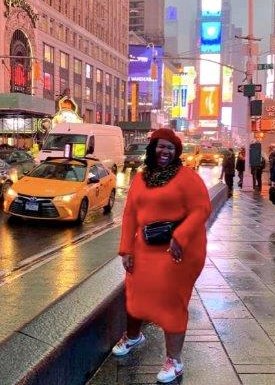
by Ria Olivier | Mar 21, 2020 | Research, SANAP, SANAP Student, Science, Southern Ocean, Women in Science
Every year new students are joining the South African National Antarctic Programme(SANAP). As Saturday is probably the time to break from studies, our first “Saturday Student” in the Mid-Month series is Kolisa Yola Sinyanya or for those who are familiar with Twitter, @Kolie_Yola. I think there are not many students out there with 7070 followers (during writing of this article) – but Kolisa does. She joined the Antarctic Legacy of South Africa (ALSA) Project and contributes towards our social media campaign, therefore letting more people know about South Africa’s involvement in the Antarctic and Southern Ocean region. Upon joining ALSA, Kolisa was set to be part of the South African group to attend the SCAR biennial conference in August 2020 in Hobart, Australia(but now cancelled).
probably the time to break from studies, our first “Saturday Student” in the Mid-Month series is Kolisa Yola Sinyanya or for those who are familiar with Twitter, @Kolie_Yola. I think there are not many students out there with 7070 followers (during writing of this article) – but Kolisa does. She joined the Antarctic Legacy of South Africa (ALSA) Project and contributes towards our social media campaign, therefore letting more people know about South Africa’s involvement in the Antarctic and Southern Ocean region. Upon joining ALSA, Kolisa was set to be part of the South African group to attend the SCAR biennial conference in August 2020 in Hobart, Australia(but now cancelled).
 She is a PhD candidate in Oceanography at the University of Cape Town (UCT). Her PhD research is part of a growing body of work that critically examines bio-geochemical cycling in the ocean, particularly regions that are currently under-sampled. The research aims involve exploring phytoplankton community dynamics and microbe-nutrient interactions in the Indian Ocean, including subtropical and Southern Ocean waters. To date, Kolisa has been awarded the Advancing Womxn Fellowship in the Department of Oceanography awarded under the “For womxn by womxn: conducting research in a field in which womxn are in short supply” category of a new initiative at UCT championed by the Office of the Vice-Chancellor. She is one of the researchers who were on 5-week cruise to Marion Island in the Sub-Antarctic Indian Ocean in 2017.
She is a PhD candidate in Oceanography at the University of Cape Town (UCT). Her PhD research is part of a growing body of work that critically examines bio-geochemical cycling in the ocean, particularly regions that are currently under-sampled. The research aims involve exploring phytoplankton community dynamics and microbe-nutrient interactions in the Indian Ocean, including subtropical and Southern Ocean waters. To date, Kolisa has been awarded the Advancing Womxn Fellowship in the Department of Oceanography awarded under the “For womxn by womxn: conducting research in a field in which womxn are in short supply” category of a new initiative at UCT championed by the Office of the Vice-Chancellor. She is one of the researchers who were on 5-week cruise to Marion Island in the Sub-Antarctic Indian Ocean in 2017.
Kolisa has a passion for learning science and for sharing her science, and her PhD has allowed Kolisa to engage  in effective science communication through public speaking, scientific writing and television features. In February of 2020, she presented one of her PhD chapters at Ocean Sciences Meeting in San Diego, USA. Towards the end of 2019, the new Advancing Womxn: Ocean Womxn Fellowship at UCT recruited Kolisa to run and manage their social media accounts as a science communicator. She was one of the invited African scientists who gave ocean and climate change related talks at #VirtualBlueCOP25. In the same year Kolisa was nominated as one of the Inspiring Fifty Women in STEM South Africa and became a Black Women in Science South Africa 2019 fellow. Kolisa was the first PhD candidate in history to be selected by the Oceanography Department’s head of department (HoD), Professor Isabelle Ansorge to stand in for her as acting HoD at a departmental graduation ceremony in 2019.
in effective science communication through public speaking, scientific writing and television features. In February of 2020, she presented one of her PhD chapters at Ocean Sciences Meeting in San Diego, USA. Towards the end of 2019, the new Advancing Womxn: Ocean Womxn Fellowship at UCT recruited Kolisa to run and manage their social media accounts as a science communicator. She was one of the invited African scientists who gave ocean and climate change related talks at #VirtualBlueCOP25. In the same year Kolisa was nominated as one of the Inspiring Fifty Women in STEM South Africa and became a Black Women in Science South Africa 2019 fellow. Kolisa was the first PhD candidate in history to be selected by the Oceanography Department’s head of department (HoD), Professor Isabelle Ansorge to stand in for her as acting HoD at a departmental graduation ceremony in 2019.
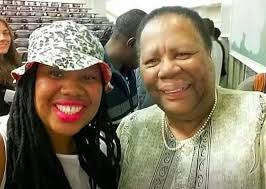 She has taken part in several science communication activities, including FameLab Cape Town, the biggest science communication competition in the world, where she was the Cape Town national runner up. Other thought- and conversation-provoking science communication engagements in which Kolisa has participated in are Pint of Science South Africa and TEDxUCT. Moreover, she presented the preliminary findings of her Agulhas System Climate Array (ASCA) research at the 2018 SANAP Symposium. Kolisa’s work has also been documented in the academic communication magazine, The Conversation Africa. She’s committed to increasing the visibility of women in STEM and runs a blog called Women In Science Hub where she write about conversations she has with women who are making waves in the world of STEM. In 2018, Kolisa had the privilege to be interviewed as a woman in science under the theme “#SHEsInSTEM” by the women’s organisation, Young&BosSHE, based in the United States. In 2019, her sci comm work was featured by Crastina in Sweden under the theme Science Communication Africa. As a student leader, she was invited by the Vice-Chancellor of the University of Cape Town, Professor Mamokgethi Phakeng, to participate in a Women’s Day discussion on Power FM about South African universities. In 2019 she was invited for live interviews twice by Cape Town TV to speak about Oceanography and on Women’s Month to speak about being a black woman in STEM. Visit Kolisa’s budding YouTube channel and leave a comment.
She has taken part in several science communication activities, including FameLab Cape Town, the biggest science communication competition in the world, where she was the Cape Town national runner up. Other thought- and conversation-provoking science communication engagements in which Kolisa has participated in are Pint of Science South Africa and TEDxUCT. Moreover, she presented the preliminary findings of her Agulhas System Climate Array (ASCA) research at the 2018 SANAP Symposium. Kolisa’s work has also been documented in the academic communication magazine, The Conversation Africa. She’s committed to increasing the visibility of women in STEM and runs a blog called Women In Science Hub where she write about conversations she has with women who are making waves in the world of STEM. In 2018, Kolisa had the privilege to be interviewed as a woman in science under the theme “#SHEsInSTEM” by the women’s organisation, Young&BosSHE, based in the United States. In 2019, her sci comm work was featured by Crastina in Sweden under the theme Science Communication Africa. As a student leader, she was invited by the Vice-Chancellor of the University of Cape Town, Professor Mamokgethi Phakeng, to participate in a Women’s Day discussion on Power FM about South African universities. In 2019 she was invited for live interviews twice by Cape Town TV to speak about Oceanography and on Women’s Month to speak about being a black woman in STEM. Visit Kolisa’s budding YouTube channel and leave a comment.
 Kolisa is also a fun loving, unconventional and free-spirited woman who has a passion for advancing the lives of others, especially young women and girls from all walks of life. Her message to fellow students:
Kolisa is also a fun loving, unconventional and free-spirited woman who has a passion for advancing the lives of others, especially young women and girls from all walks of life. Her message to fellow students: 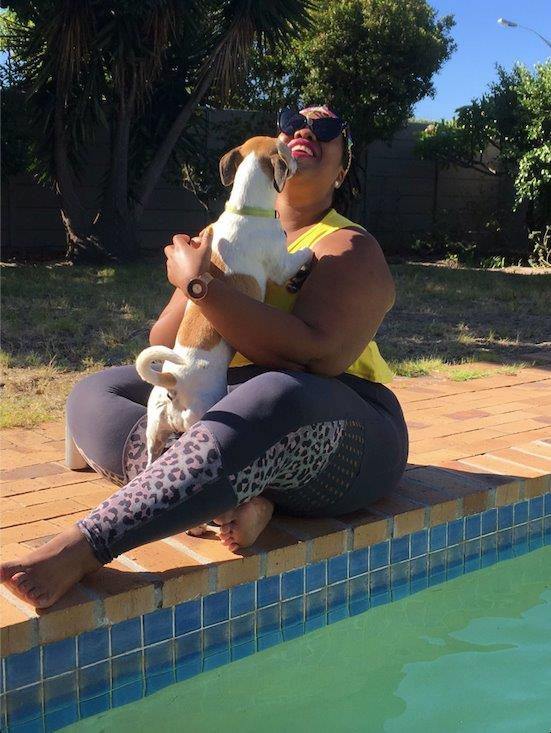
- Believe in your contributions because no one else is like you, you bring to the table a combination of things the next person will not.
- Be in love with and have passion for your career because if you don’t your path within that career will be a chore.
- Never give up because winners never quit, and quitters never win.
- Go for your dreams. Never let anything/anyone discourage you from reaching and far surpassing those set goals.


 Luca Stirnimann received his BSc at the University of Genova (Italy) in 2013, majoring in Environmental Science. He was introduced to his first marine applications of ecology and taxonomy during a summer school spent on the Linosa Island (Mediterranean Sea) as an undergraduate, investigating invasive marine alien species. During his MSc in Genova, he could study time series and regime shifts analysis on plankton systems. After graduated summa cum laude in Marine Sciences (2015) at the University of Genova, he spent one year at the Marine Biological Association (Plymouth, UK) attending the MRes in Marine Biology, where he could continue his studies on plankton and experimenting the life as a scientific researcher.
Luca Stirnimann received his BSc at the University of Genova (Italy) in 2013, majoring in Environmental Science. He was introduced to his first marine applications of ecology and taxonomy during a summer school spent on the Linosa Island (Mediterranean Sea) as an undergraduate, investigating invasive marine alien species. During his MSc in Genova, he could study time series and regime shifts analysis on plankton systems. After graduated summa cum laude in Marine Sciences (2015) at the University of Genova, he spent one year at the Marine Biological Association (Plymouth, UK) attending the MRes in Marine Biology, where he could continue his studies on plankton and experimenting the life as a scientific researcher.


 From 2017, he is a PhD student at the University of Cape Town. He analyses the samples he collected during several expeditions to Antarctica, in order to investigate zooplankton and phytoplankton dynamics in the Southern Ocean in the context of nutrient cycling and primary production. He is comparing ecosystem dynamics in the vicinity of Subantarctic island systems with the open Southern Ocean. Luca’s project falls under the current SANAP Project: “A nitrogen cycle view of atmospheric CO2 sequestration in the Antarctic Ocean” (Principal Investigator: Dr SE Fawcett, University of Cape Town)
From 2017, he is a PhD student at the University of Cape Town. He analyses the samples he collected during several expeditions to Antarctica, in order to investigate zooplankton and phytoplankton dynamics in the Southern Ocean in the context of nutrient cycling and primary production. He is comparing ecosystem dynamics in the vicinity of Subantarctic island systems with the open Southern Ocean. Luca’s project falls under the current SANAP Project: “A nitrogen cycle view of atmospheric CO2 sequestration in the Antarctic Ocean” (Principal Investigator: Dr SE Fawcett, University of Cape Town)
 Earth science, in general, has always been fascinating to me and since I was little, my desire was to discover and learn new things related to our oceans.
Earth science, in general, has always been fascinating to me and since I was little, my desire was to discover and learn new things related to our oceans.

 Thanks to oceanography, I can attend fantastic expeditions anywhere in the world, exploring from the icy polar seas to the warmer waters of the equator, spending weeks or even months on board of research vessels. During these trips, I always meet colleagues and extraordinary scientists that share the same interests and passions of mine, even if they are from different fields. Furthermore, coming to South Africa, I joined two great scientific communities: one is the SANAP group, where all the experts of the Antarctic systems meet all together to share their works and thoughts; and the second, the South African Association of Polar Early Career Scientists (APECSSA), which gives me the privilege to develop a South African group of scientists with the Polar Science as a common interest.
Thanks to oceanography, I can attend fantastic expeditions anywhere in the world, exploring from the icy polar seas to the warmer waters of the equator, spending weeks or even months on board of research vessels. During these trips, I always meet colleagues and extraordinary scientists that share the same interests and passions of mine, even if they are from different fields. Furthermore, coming to South Africa, I joined two great scientific communities: one is the SANAP group, where all the experts of the Antarctic systems meet all together to share their works and thoughts; and the second, the South African Association of Polar Early Career Scientists (APECSSA), which gives me the privilege to develop a South African group of scientists with the Polar Science as a common interest.
 This is a great career that stimulates you at any moment of your life, and if you are curious, motivated, and resourceful, well… this job is waiting for you.
This is a great career that stimulates you at any moment of your life, and if you are curious, motivated, and resourceful, well… this job is waiting for you.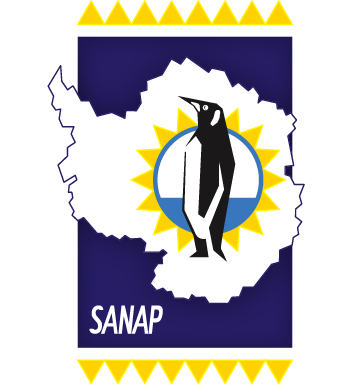

 Liezel (Elizabeth) Rudolph obtained her Geography BSc and Honours degrees at the University of Pretoria, and a MSc at Rhodes University. She also has a PGCE from UNISA, which allowed her to teach Geography at Abbott’s College in Pretoria for a few years. She is currently in the final stages of her PhD (also in Geography) at the
Liezel (Elizabeth) Rudolph obtained her Geography BSc and Honours degrees at the University of Pretoria, and a MSc at Rhodes University. She also has a PGCE from UNISA, which allowed her to teach Geography at Abbott’s College in Pretoria for a few years. She is currently in the final stages of her PhD (also in Geography) at the 










 probably the time to break from studies, our first “Saturday Student” in the Mid-Month series is Kolisa Yola Sinyanya or for those who are familiar with Twitter,
probably the time to break from studies, our first “Saturday Student” in the Mid-Month series is Kolisa Yola Sinyanya or for those who are familiar with Twitter,  She is a PhD candidate in Oceanography at the University of Cape Town (UCT). Her PhD research is part of a growing body of work that critically examines bio-geochemical cycling in the ocean, particularly regions that are currently under-sampled. The research aims involve exploring phytoplankton community dynamics and microbe-nutrient interactions in the Indian Ocean, including subtropical and Southern Ocean waters. To date, Kolisa has been awarded the Advancing Womxn Fellowship in the Department of Oceanography awarded under the “For womxn by womxn: conducting research in a field in which womxn are in short supply” category of a new initiative at UCT championed by the Office of the Vice-Chancellor. She is one of the researchers who were on 5-week cruise to Marion Island in the Sub-Antarctic Indian Ocean in 2017.
She is a PhD candidate in Oceanography at the University of Cape Town (UCT). Her PhD research is part of a growing body of work that critically examines bio-geochemical cycling in the ocean, particularly regions that are currently under-sampled. The research aims involve exploring phytoplankton community dynamics and microbe-nutrient interactions in the Indian Ocean, including subtropical and Southern Ocean waters. To date, Kolisa has been awarded the Advancing Womxn Fellowship in the Department of Oceanography awarded under the “For womxn by womxn: conducting research in a field in which womxn are in short supply” category of a new initiative at UCT championed by the Office of the Vice-Chancellor. She is one of the researchers who were on 5-week cruise to Marion Island in the Sub-Antarctic Indian Ocean in 2017. in effective science communication through public speaking, scientific writing and television features. In February of 2020, she presented one of her PhD chapters at Ocean Sciences Meeting in San Diego, USA. Towards the end of 2019, the new
in effective science communication through public speaking, scientific writing and television features. In February of 2020, she presented one of her PhD chapters at Ocean Sciences Meeting in San Diego, USA. Towards the end of 2019, the new  She has taken part in several science communication activities, including
She has taken part in several science communication activities, including 

